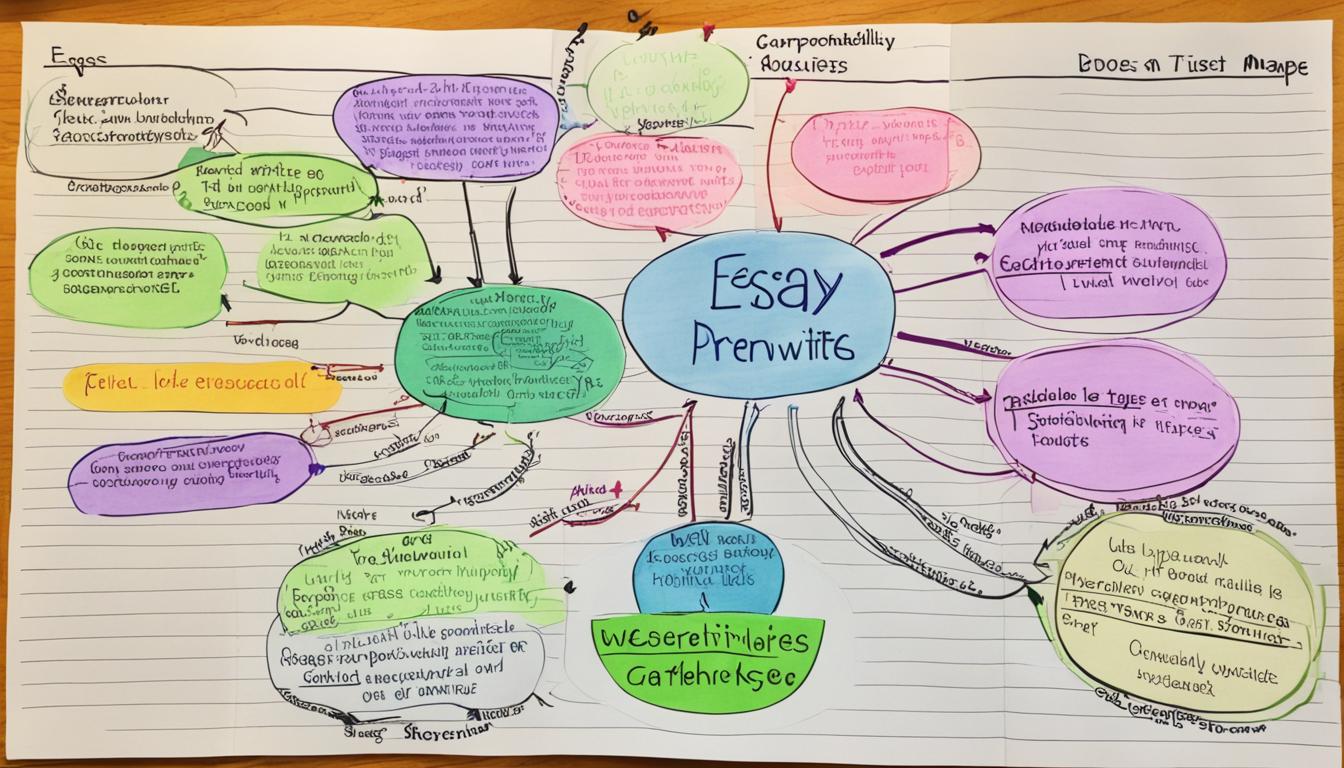How to Write a Thematic Essay?
Jul 2,24
Writing a thematic essay is a fun challenge for students at all levels. This guide will help you make a great thematic essay. You’ll learn how to grasp the main parts of a thematic essay, do effective prewriting and research, make a strong thesis statement, structure your essay well, and end it strongly. By getting good at these skills, you’ll be ready to write a thematic essay that grabs your audience and shows off your analytical skills.

Key Takeaways
- Understand the definition and purpose of a thematic essay
- Identify the central theme or themes in a literary work
- Conduct thorough research to support your analysis
- Craft a clear and concise thesis statement
- Organize your essay into a logical and coherent structure
Understanding the Thematic Essay
A thematic essay is a special kind of essay. It looks into the main themes or ideas in a book, event, or topic. Unlike regular essays, it focuses on the deep themes that make the story or idea important.
What is a Thematic Essay?
A thematic essay deeply explores the theme or themes key to a text or topic. Its main aim is to find the deeper meaning and significance. By looking into the literary theme, essay writers can understand the work and its wider impact better.
Identifying the Theme
Finding the main theme or themes of a thematic essay is vital. This means reading the text closely, thinking about the context, and spotting the hidden messages. Here are some ways to find the theme:
- Look for recurring motifs, symbols, or images that suggest deeper meanings.
- Study the characters’ reasons, conflicts, and changes.
- Think about how the topic relates to society, history, or culture.
- Reflect on the feelings, values, and common human experiences in the work.
By looking at these things, writers can find the main theme or themes for their thematic essay.

A thematic essay is more than just a summary or a list of facts. It’s a chance to explore the deeper meanings and significance. This makes readers understand and value the essay topic more.
Prewriting and Research
Writing a great thematic essay needs careful planning and deep research. The prewriting stage is crucial. It lets you dive into the topic, come up with ideas, and find the textual evidence you need.
Start by looking at the prompt or assignment closely. Find the key themes you must explore and the rules you must follow. This makes your research focused and ensures your essay meets your audience’s expectations.
Then, do active reading of the main texts. Take detailed notes and highlight key parts. Notice the recurring motifs, character growth, and how the author uses literary devices. This in-depth analysis will deepen your knowledge and prepare you for your literary analysis.
While reading, start brainstorming possible thesis statements and main arguments. Write down your first thoughts, questions, and observations. Let your ideas grow naturally. Think about how different themes, characters, or events connect and start shaping your unique view of the text.
Next, add secondary research like scholarly articles, critical analyses, and historical background. This extra info helps you contextualize your understanding and makes your essay more credible.
Putting time into prewriting and research prepares you to write a cohesive and well-supported thematic essay. It shows you really get the text and can think deeply about its themes and ideas.
“The research process is not a linear path, but rather a dynamic exploration that allows you to uncover new insights and refine your understanding of the text.”
Crafting a Thesis Statement
The thesis statement is the core of your essay. It’s a brief, clear sentence that states the main argument or focus. A strong thesis statement is key for keeping your writing focused and clear. It’s crucial whether you’re writing an essay thesis, an argumentative thesis, or a literary analysis thesis.
The Importance of a Strong Thesis
A strong thesis statement does several important things in your essay:
- It gives a clear, brief guide for your essay, keeping your writing on topic.
- It presents a focused, debatable claim that you can back up with evidence.
- It helps you organize your ideas, making sure your essay has a logical structure.
- It grabs the reader’s attention, pulling them into your argument.
Thesis Statement Examples
Creating a good thesis statement takes thought and refinement. Here are some examples of strong thesis statements for thematic essays:
| Essay Type | Thesis Statement |
|---|---|
| Literary Analysis | The theme of isolation in Shirley Jackson’s “The Lottery” shows how following the crowd can be harmful in small towns. |
| Argumentative | The U.S. government should offer universal healthcare to everyone. This would boost public health and ease financial stress on families. |
| Thematic | Maya Angelou’s “I Know Why the Caged Bird Sings” shows how people can bounce back from hard times and trauma. |
Each of these thesis statements clearly states a focused argument. They can be developed and supported in the essay’s body. A well-crafted thesis statement lays the groundwork for a strong, engaging thematic essay.
Thematic Essay Structure and Organization
Writing a thematic essay needs a clear structure to share your ideas well. It usually has an introduction, body paragraphs, and a conclusion.
Introduction
The introduction should give a brief overview of the essay’s main theme. It should grab the reader’s attention and prepare them for what’s to come. Start with something interesting, like a quote or a fact, to draw them in.
Then, add some background info on the topic. Finally, state your thesis, which is the main argument of your essay.
Body Paragraphs
Body paragraphs should be clear and support the main theme with evidence and analysis. Each paragraph should have a main idea that ties back to the theme. Use examples, quotes, and your thoughts to make your points.
Make sure your paragraphs flow well and connect ideas smoothly. This makes your essay easy to follow and understand.
Conclusion
As you finish your thematic essay, the essay conclusion is key. It’s your chance to make your analysis strong and leave a mark on the reader. This part will wrap up your main points and show why they matter.
To make a good conclusion, go back to the main theme you talked about. Restate the important points and what you’ve learned, showing how your analysis has made the theme clearer. Don’t just repeat your thesis; offer a new view that ties everything together.
Think about what your theme means in a bigger picture. How does it relate to society, culture, or history? What important lessons or insights can readers take away from your essay? Ending with these thoughts will make your essay conclusion impactful and memorable.
FAQ
What is a thematic essay?
A thematic essay is a type of assignment writing. It focuses on analyzing a central theme or themes in a literary work or text. The writer must identify and explore the significance of these themes. They also show how they relate to the piece’s overall message or purpose.
How do I identify the theme of a text?
To find the theme of a text, look for the main message the author is sharing. Think about the characters, plot, and setting and how they help develop the theme. Analyze how the author uses literary devices and symbolism to reveal the themes.
What are the key steps in the prewriting and research process for a thematic essay?
The key steps for a thematic essay include: – Reading and analyzing the text to grasp the central themes. – Researching to find textual evidence and support. – Using techniques like freewriting and outlining to brainstorm themes. – Organizing your research and ideas to focus your essay.
What makes a strong thesis statement for a thematic essay?
A strong thesis statement for a thematic essay should: – Clearly state the central theme or themes you’ll explore. – Offer a focused and specific argument about the theme’s significance. – Be supported by evidence from the text or topic. – Provide a unique or insightful perspective.
How should I structure the body paragraphs of a thematic essay?
The body paragraphs of a thematic essay should support your thesis and analysis. Each paragraph should: – Focus on a specific aspect of the theme. – Use textual evidence and analysis to back up your claims. – Show the theme’s significance to the text’s meaning or purpose. – Explain how the text’s elements, like character and plot, relate to the theme.
What should I include in the conclusion of a thematic essay?
The conclusion of a thematic essay should: – Summarize your main points and arguments. – Highlight the theme’s significance and broader implications. – Reinforce your thesis and the importance of your analysis. – Offer a final, insightful perspective on the theme and its relevance.





0 responses on "How to Write a Thematic Essay?"